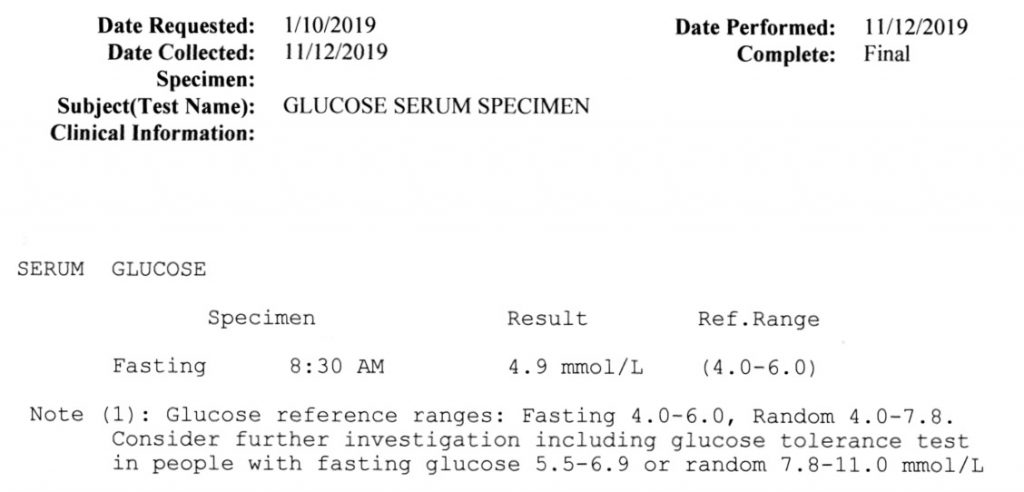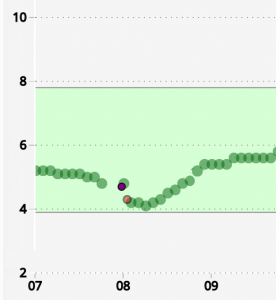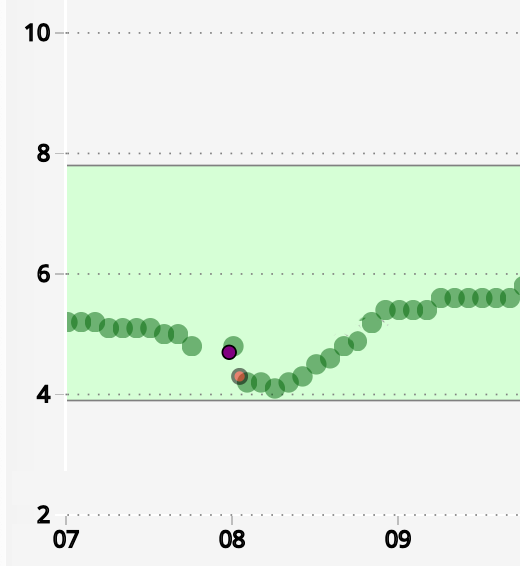Recently I had to do the regular blood-test thing of fasting from the night before, then in the morning heading off to a collection site to have blood drawn, allowing me to have breakfast when I got home. I was reminded of the “Fasting glucose tests” article I wrote last year. Incidentally my endocrinologist did eventually read that article and agreed that it wasn’t really necessary. But I am now seeing a different endocrinologist (for other reasons).
In this case it was a reasonably broad-spectrum panel of tests:

The tests there that needed me to have fasted were mainly the lipid (cholesterol) tests plus the “Glucose (Fasting)”. As it happens, fasting blood tests are no longer a problem for me as I find my closed-loop system can keep me stable for hours without food (so much so that I no longer fuss about being first on theatre lists). So fasting for the blood test wasn’t a hassle, but it’s still amusing that the standard panel always seems to include a fasting glucose test.
Why do we do the fasting glucose test?
The result should be equivalent to a fingerprick test done by the patient (even in the comfort of their own home). I suppose it provides a reference check for cases where people are not able to do their own checks, or have inaccurate meters.
But is there added cost to the health care system to do that extra test? I presume an extra charge gets added somewhere on an invoice for it.
In my case it usually agrees with my other data, so definitely seems superfluous. In this last case the lab reported 4.9 mmol/L.

Keep in mind that I had woken up, had a shower, got dressed, and walked almost a kilometre to the lab collection point.
 Looking at my CGM data for that morning we can see that around 8AM I recalibrated the CGM (which brought it down slightly) and then walked to the collection point. At around 8:30 AM when the above blood was taken, the CGM was reporting a value that would have been in the high 4’s. Probably not quite 4.9, but we’re always told to expect a slight lag.
Looking at my CGM data for that morning we can see that around 8AM I recalibrated the CGM (which brought it down slightly) and then walked to the collection point. At around 8:30 AM when the above blood was taken, the CGM was reporting a value that would have been in the high 4’s. Probably not quite 4.9, but we’re always told to expect a slight lag.
I’d say that was a pretty good match for the lab test.
Why?
Now I’m not saying that we shouldn’t have tests done (when we’re already having blood taken to have others done) just because we think we know what the answer will be.
Many tests are done with the expectation that their results will not show anything useful, but it’s still important to do them.
I suppose in my case the value of the Glucose (Fasting) is just to flag if my normal meters and CGM are not working correctly?

